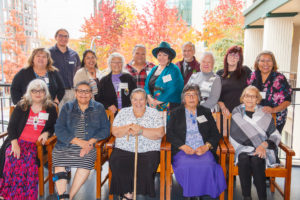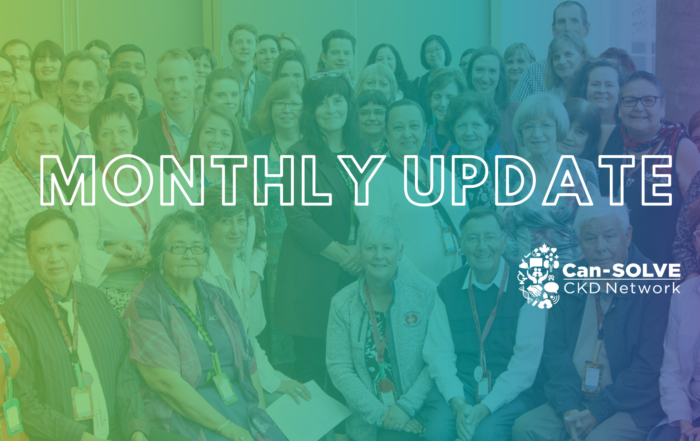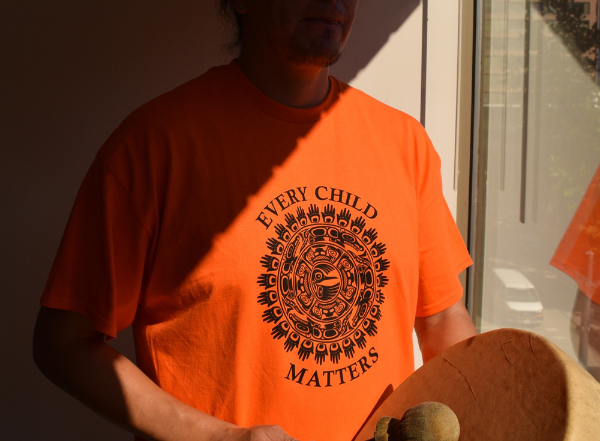 Wabishki Bizhiko Skaanj (wah-bish-kih biish-ih-goo skaa-nch) is a learning pathway that aims to enhance researchers’ knowledge and awareness of racial biases, Indigenous voices and stories, the impact of colonization on Indigenous health, and culturally safe health research practices. This update aims to keep you informed on the progress of this work while encouraging you to begin your personal journey along the learning pathway to add knowledge and inspire action within patient oriented research teams, specifically with Indigenous experiences, health and wellness in mind. Two components of our Learning Pathway are currently under development with the Wabishki Bizhiko Skaanj Working Group and are set to be released in 2020.
Wabishki Bizhiko Skaanj (wah-bish-kih biish-ih-goo skaa-nch) is a learning pathway that aims to enhance researchers’ knowledge and awareness of racial biases, Indigenous voices and stories, the impact of colonization on Indigenous health, and culturally safe health research practices. This update aims to keep you informed on the progress of this work while encouraging you to begin your personal journey along the learning pathway to add knowledge and inspire action within patient oriented research teams, specifically with Indigenous experiences, health and wellness in mind. Two components of our Learning Pathway are currently under development with the Wabishki Bizhiko Skaanj Working Group and are set to be released in 2020.
Engaging Knowledge Keepers in Research – A Gathering
 On October 24-25, 2019, several Knowledge Keepers gathered in Vancouver, BC to with the working group and the Can-SOLVE CKD Core staff. The goal of this meeting was to listen to various Knowledge Keepers with the intention of expanding our own knowledge. With knowledge Keepers from British Columbia, Alberta, Saskatchewan, Manitoba, Ontario and Quebec, one of the significant goals of this event was the importance of building on Indigenous research perspectives with an array of knowledge keepers from distinct Nations. The group of Knowledge Keepers brought together a diversity of Indigenous voices from different parts of the country while being connected and allied in spirit and cultural survivance. The work of this group is relevant to the Wabishki Bizhiko Skaanj Learning Pathway by way of listening and learning to the knowledge imparted and relating this knowledge to Indigenous involvement in research. For the patient partners and Can-SOLVE CKD core team, this experience also serves us well in carrying these messages with us as we continue to develop the Knowledge Keepers component in 2020.
On October 24-25, 2019, several Knowledge Keepers gathered in Vancouver, BC to with the working group and the Can-SOLVE CKD Core staff. The goal of this meeting was to listen to various Knowledge Keepers with the intention of expanding our own knowledge. With knowledge Keepers from British Columbia, Alberta, Saskatchewan, Manitoba, Ontario and Quebec, one of the significant goals of this event was the importance of building on Indigenous research perspectives with an array of knowledge keepers from distinct Nations. The group of Knowledge Keepers brought together a diversity of Indigenous voices from different parts of the country while being connected and allied in spirit and cultural survivance. The work of this group is relevant to the Wabishki Bizhiko Skaanj Learning Pathway by way of listening and learning to the knowledge imparted and relating this knowledge to Indigenous involvement in research. For the patient partners and Can-SOLVE CKD core team, this experience also serves us well in carrying these messages with us as we continue to develop the Knowledge Keepers component in 2020.
Indigenous Research Ethics and Protocols – A Webinar series
 Looking, Listening, Learning and Leading. These four methods are integral to Indigenous research with respect to ethical considerations and cultural protocols for engaging with Indigenous communities. Being observant is an essential component to any research, and is the basis for the first of three Webinars in our new webinar series with Dr. Malcolm King. Looking at historical impacts of unethical research and highlighting current examples of Ownership, Control, Access and Possession (OCAP) training; Community and Institutional guidelines for conducting research in Indigenous communities. Our first Webinar with Dr. Malcolm King is available on our YouTube channel. The second and third Webinars will be taking place in 2020.
Looking, Listening, Learning and Leading. These four methods are integral to Indigenous research with respect to ethical considerations and cultural protocols for engaging with Indigenous communities. Being observant is an essential component to any research, and is the basis for the first of three Webinars in our new webinar series with Dr. Malcolm King. Looking at historical impacts of unethical research and highlighting current examples of Ownership, Control, Access and Possession (OCAP) training; Community and Institutional guidelines for conducting research in Indigenous communities. Our first Webinar with Dr. Malcolm King is available on our YouTube channel. The second and third Webinars will be taking place in 2020.
Listening is the basis for Webinar #2 (save the Date for February 5th, 2020). Learning is the basis for the third Webinar (save the date for February 26th, 2020). The last piece of the Webinar series is the leading component, where we encourage participants to lead their work and research with information and strategies gathered from the Webinar series. Understanding that Indigenous communities and Nations have distinct ethics and protocols in territories across Canada, this series of webinars aims to spark discussions and encourage contextualizing Indigenous Research Ethics and Protocols in local communities and Nations that are engaged in research initiatives.



Connect with us